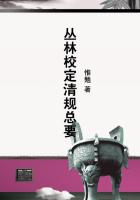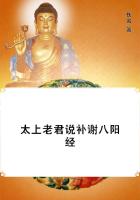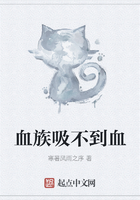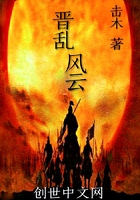I felt the friendly pressure of his hand on my arm. I could not answer him. With every word from his lips and every moment of his presence my sorrow grew keener that he would not stay.
Bernenstein looked across at me and shrugged his shoulders despairingly. Rudolf gave a little laugh.
"You won't forgive me for not being as great a rogue, won't you?"
he asked.
Well, I found nothing to say, but I took my arm out of his and clasped his hand. He gripped mine hard.
"That's old Fritz!" he said; and he caught hold of Bernenstein's hand, which the lieutenant yielded with some reluctance. "Now for the plan," said he. "Bernenstein and I set out at once for the lodge--yes, publicly, as publicly as we can. I shall ride right through the people there, showing myself to as many as will look at me, and letting it be known to everybody where I'm going. We shall get there quite early to-morrow, before it's light. There we shall find what you know. We shall find Sapt, too, and he'll put the finishing touches to our plan for us. Hullo, what's that?"
There was a sudden fresh shouting from the large crowd that still lingered outside the palace. I ran to the window, and saw a commotion in the midst of them. I flung the sash up. Then I heard a well-known, loud, strident voice: "Make way, you rascals, make way."
I turned round again, full of excitement.
"It's Sapt himself!" I said. "He's riding like mad through the crowd, and your servant's just behind him."
"My God, what's happened? Why have they left the lodge?" cried Bernenstein.
The queen looked up in startled alarm, and, rising to her feet, came and passed her arm through Rudolf's. Thus we all stood, listening to the people good-naturedly cheering Sapt, whom they had recognized, and bantering James, whom they took for a servant of the constable's.
The minutes seemed very long as we waited in utter perplexity, almost in consternation. The same thought was in the mind of all of us, silently imparted by one to another in the glances we exchanged. What could have brought them from their guard of the great secret, save its discovery? They would never have left their post while the fulfilment of their trust was possible. By some mishap, some unforeseen chance, the king's body must have been discovered. Then the king's death was known, and the news of it might any moment astonish and bewilder the city.
At last the door was flung open, and a servant announced the Constable of Zenda. Sapt was covered with dust and mud, and James, who entered close on his heels, was in no better plight.
Evidently they had ridden hard and furiously; indeed they were still panting. Sapt, with a most perfunctory bow to the queen, came straight to where Rudolf stood.
"Is he dead?" he asked, without preface.
"Yes, Rupert is dead," answered Mr. Rassendyll: "I killed him."
"And the letter?"
"I burnt it."
"And Rischenheim?"
The queen struck in.
"The Count of Luzau-Rischenheim will say and do nothing against me," she said.
Sapt lifted his brows a little. "Well, and Bauer?" he asked.
"Bauer's at large," I answered.
"Hum! Well, it's only Bauer" said the constable, seeming tolerably well pleased. Then his eyes fell on Rudolf and Bernenstein. He stretched out his hand and pointed to their riding-boots. "Whither away so late at night?" he asked.
"First together to the lodge, to find you, then I alone to the frontier," said Mr. Rassendyll.
"One thing at a time. The frontier will wait. What does your Majesty want with me at the lodge?"
"I want so to contrive that I shall be no longer your Majesty,"
said Rudolf.
Sapt flung himself into a chair and took off his gloves.
"Come, tell me what has happened to-day in Strelsau," he said.
We gave a short and hurried account. He listened with few signs of approval or disapproval, but I thought I saw a gleam in his eyes when I described how all the city had hailed Rudolf as its king and the queen received him as her husband before the eyes of all. Again the hope and vision, shattered by Rudolf's calm resolution, inspired me. Sapt said little, but he had the air of a man with some news in reserve. He seemed to be comparing what we told him with something already known to him but unknown to us. The little servant stood all the while in respectful stillness by the door; but I could see by a glance at his alert face that he followed the whole scene with keen attention.
At the end of the story, Rudolf turned to Sapt. "And your secret--is it safe?" he asked.
"Ay, it's safe enough!"
"Nobody has seen what you had to hide?"
"No; and nobody knows that the king is dead," answered Sapt.
"Then what brings you here?"
"Why, the same thing that was about to bring you to the lodge:
the need of a meeting between yourself and me, sire."
"But the lodge--is it left unguarded?"
"The lodge is safe enough," said Colonel Sapt.
Unquestionably there was a secret, a new secret, hidden behind the curt words and brusque manner. I could restrain myself no longer, and sprang forward, saying: "What is it? Tell us, Constable!"
He looked at me, then glanced at Mr. Rassendyll.
"I should like to hear your plan first," he said to Rudolf. "How do you mean to account for your presence alive in the city to-day, when the king has lain dead in the shooting-box since last night?"
We drew close together as Rudolf began his answer. Sapt alone lay back in his chair. The queen also had resumed her seat; she seemed to pay little heed to what we said. I think that she was still engrossed with the struggle and tumult in her own soul. The sin of which she accused herself, and the joy to which her whole being sprang in a greeting which would not be abashed, were at strife between themselves, but joined hands to exclude from her mind any other thought.
"In an hour I must be gone from here," began Rudolf.
"If you wish that, it's easy," observed Colonel Sapt.
"Come, Sapt, be reasonable," smiled Mr. Rassendyll. "Early to-morrow, we--you and I--"
"Oh, I also?" asked the colonel.
"Yes; you, Bernenstein, and I will be at the lodge."
"That's not impossible, though I have had nearly enough riding."















